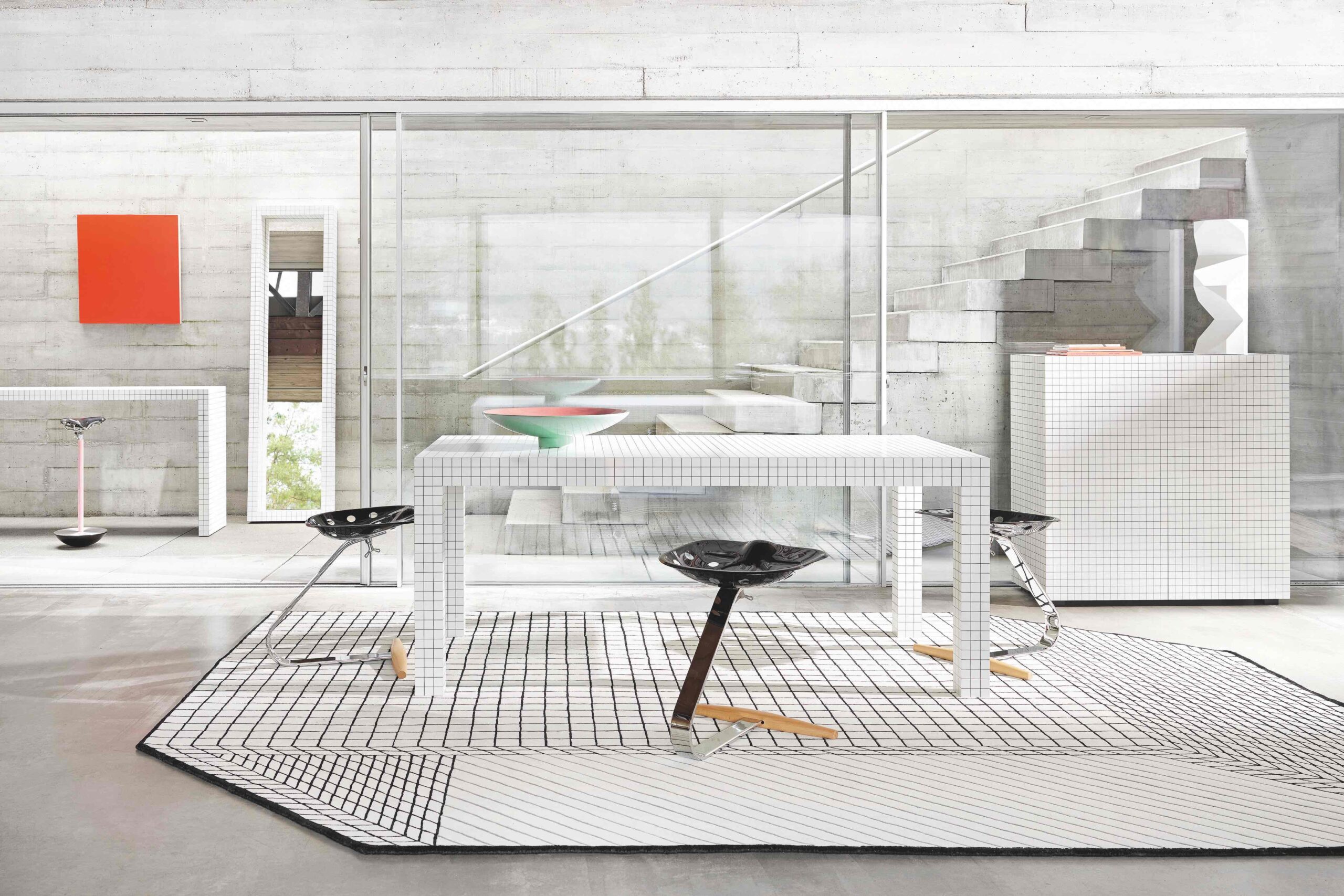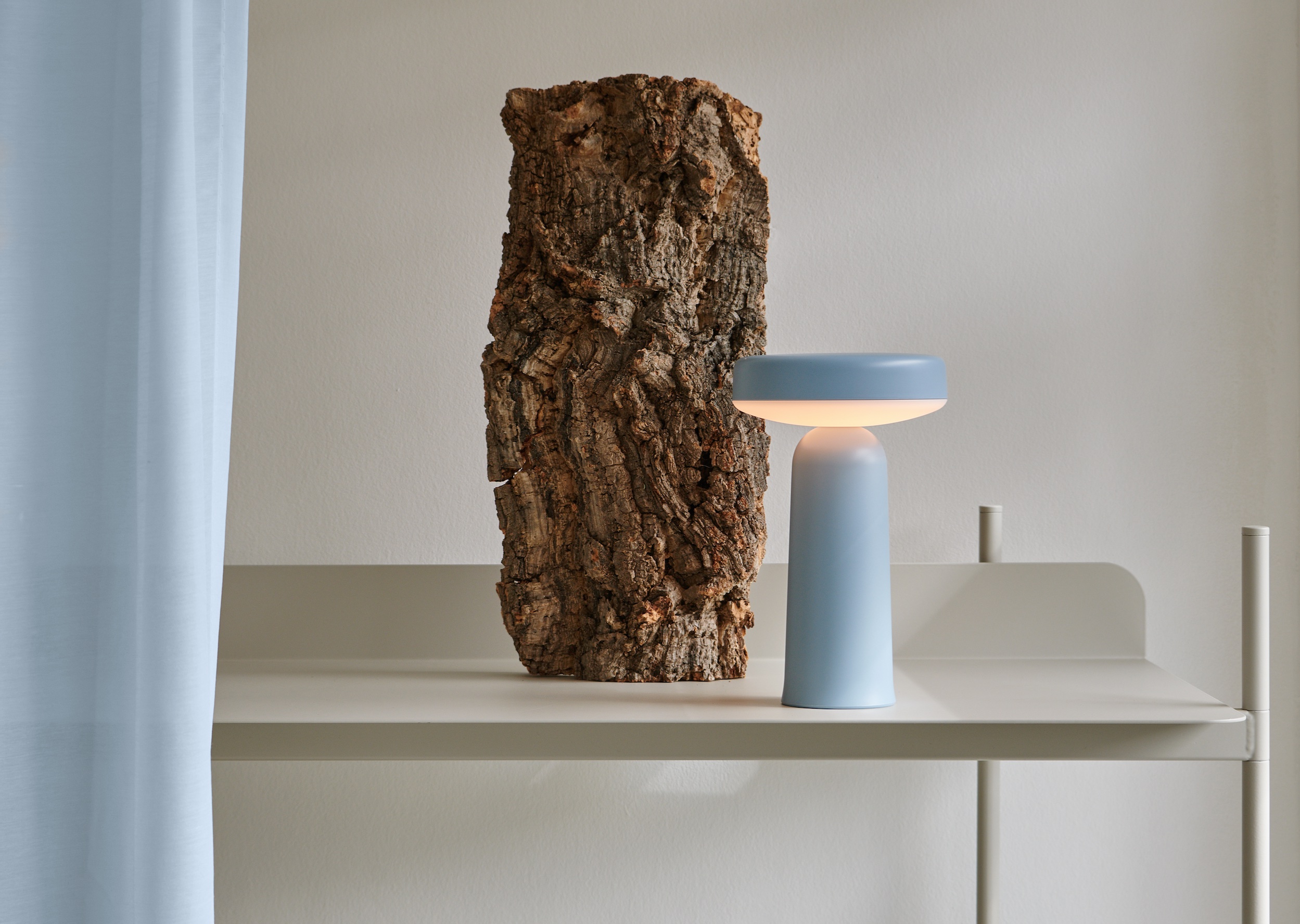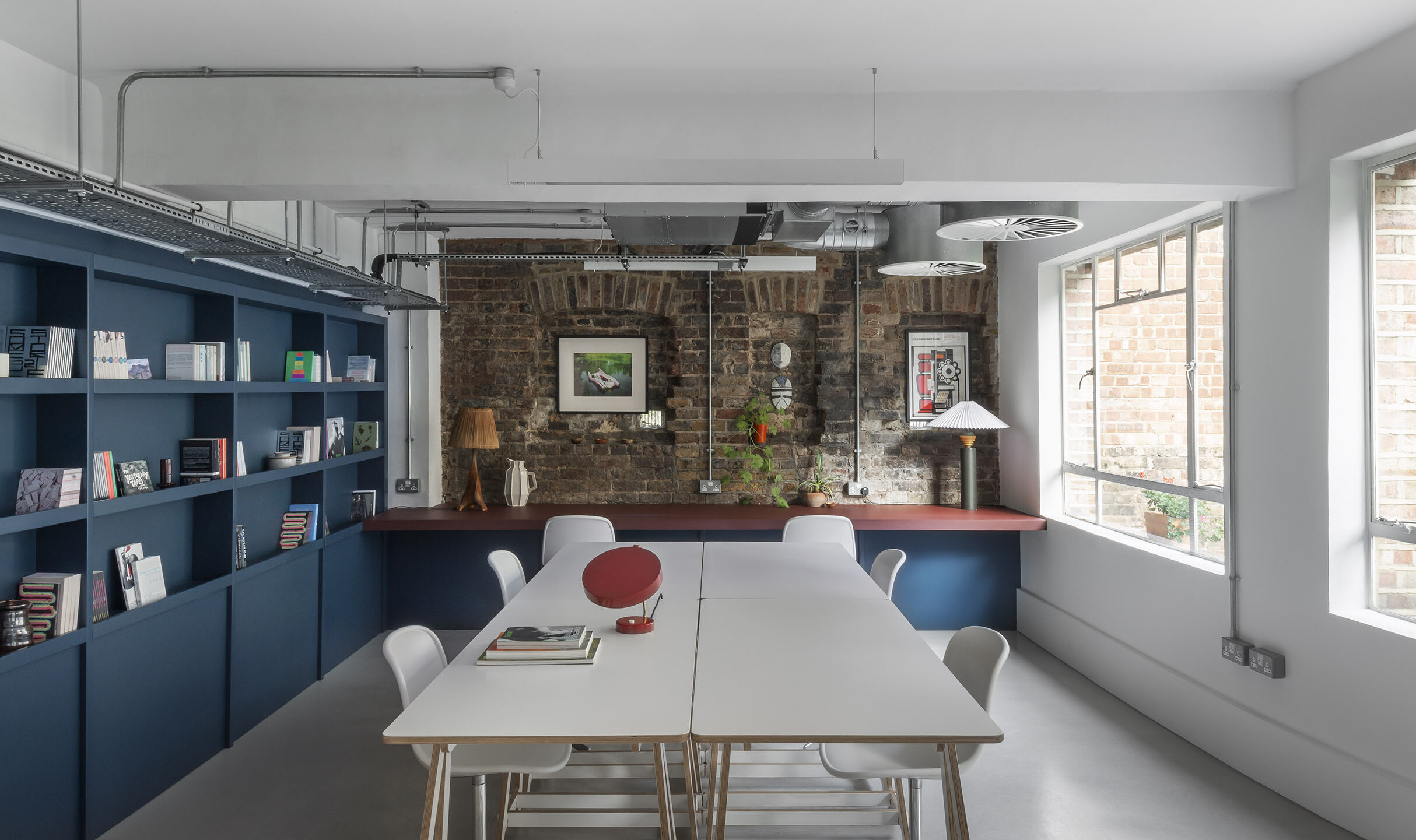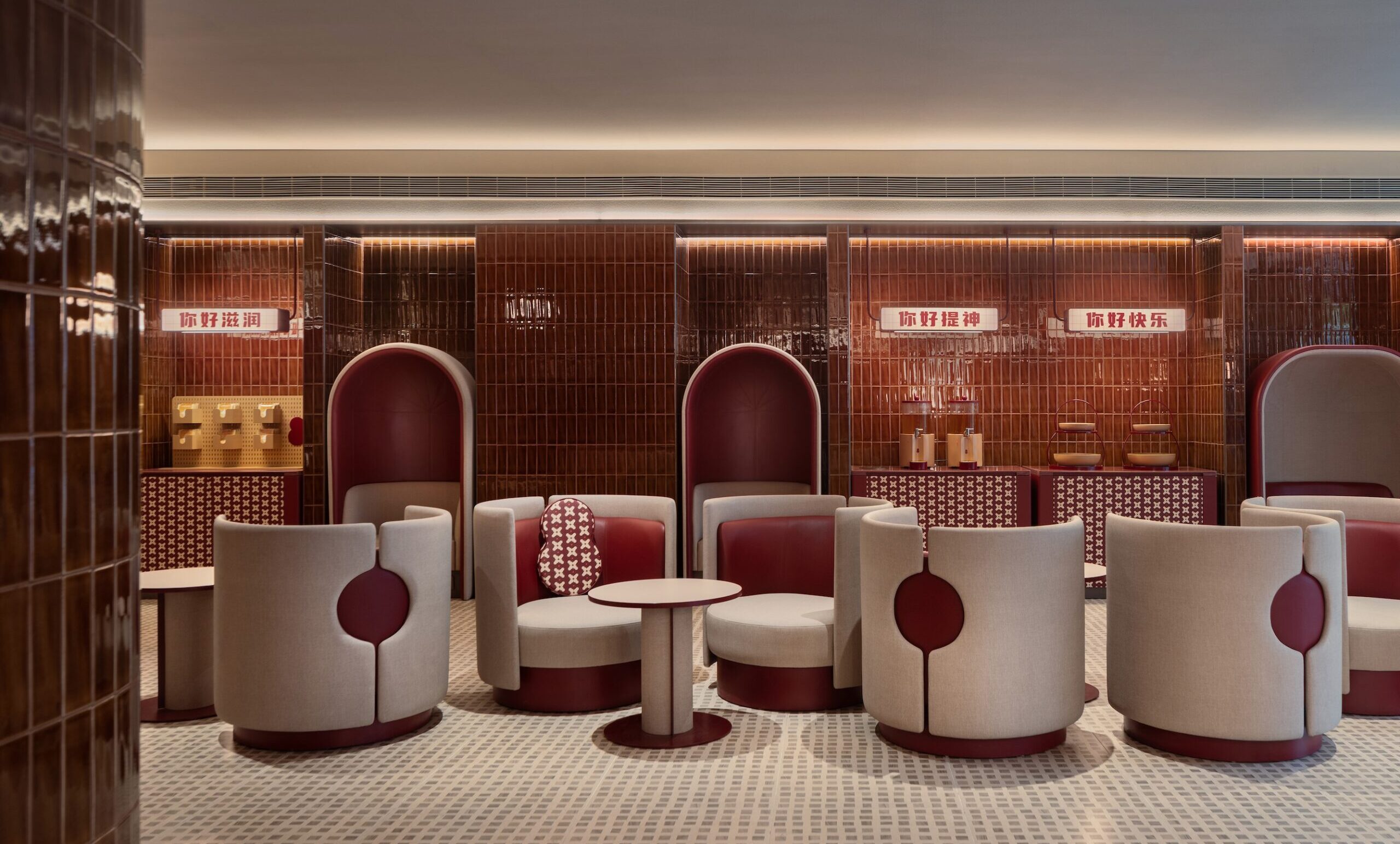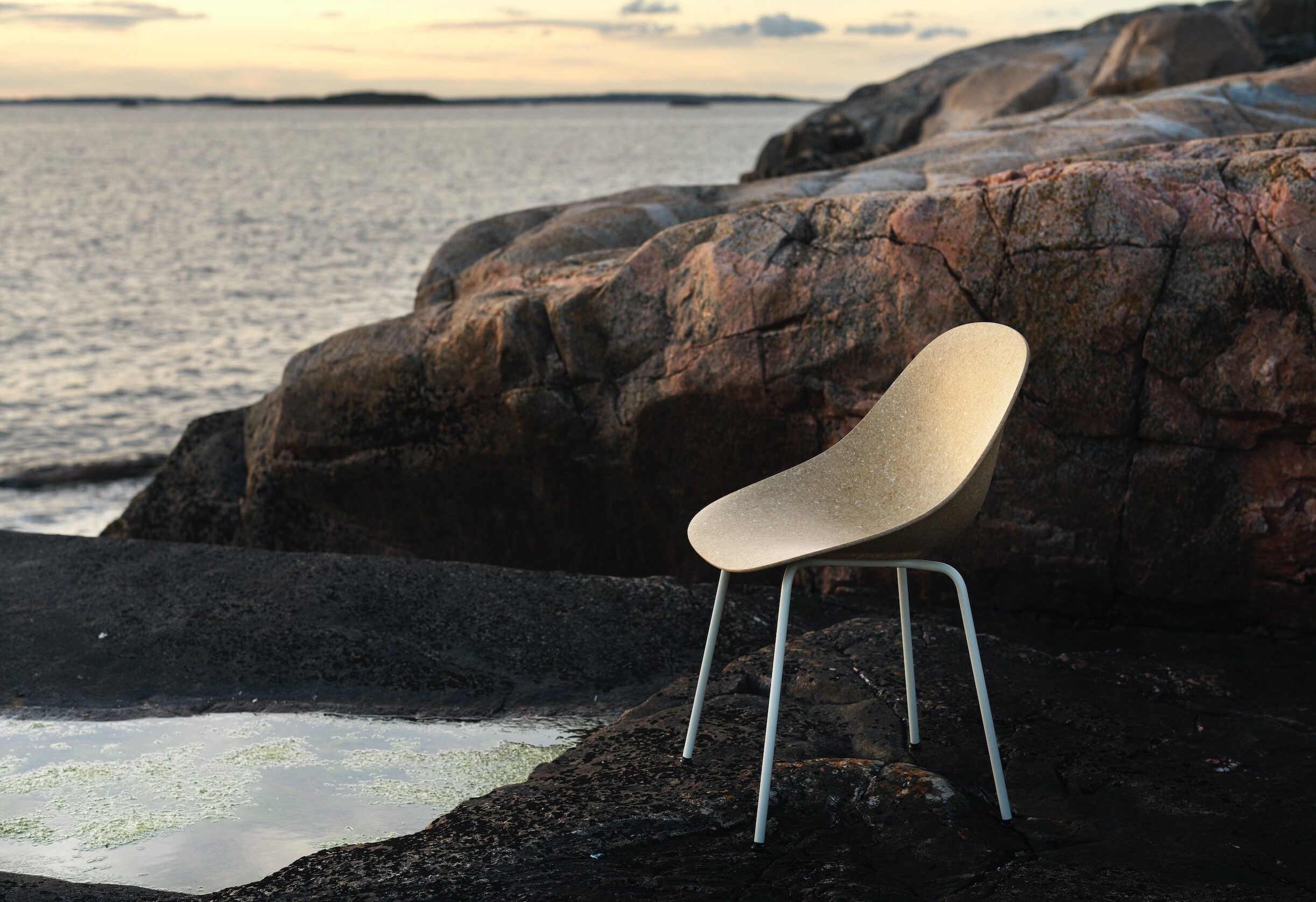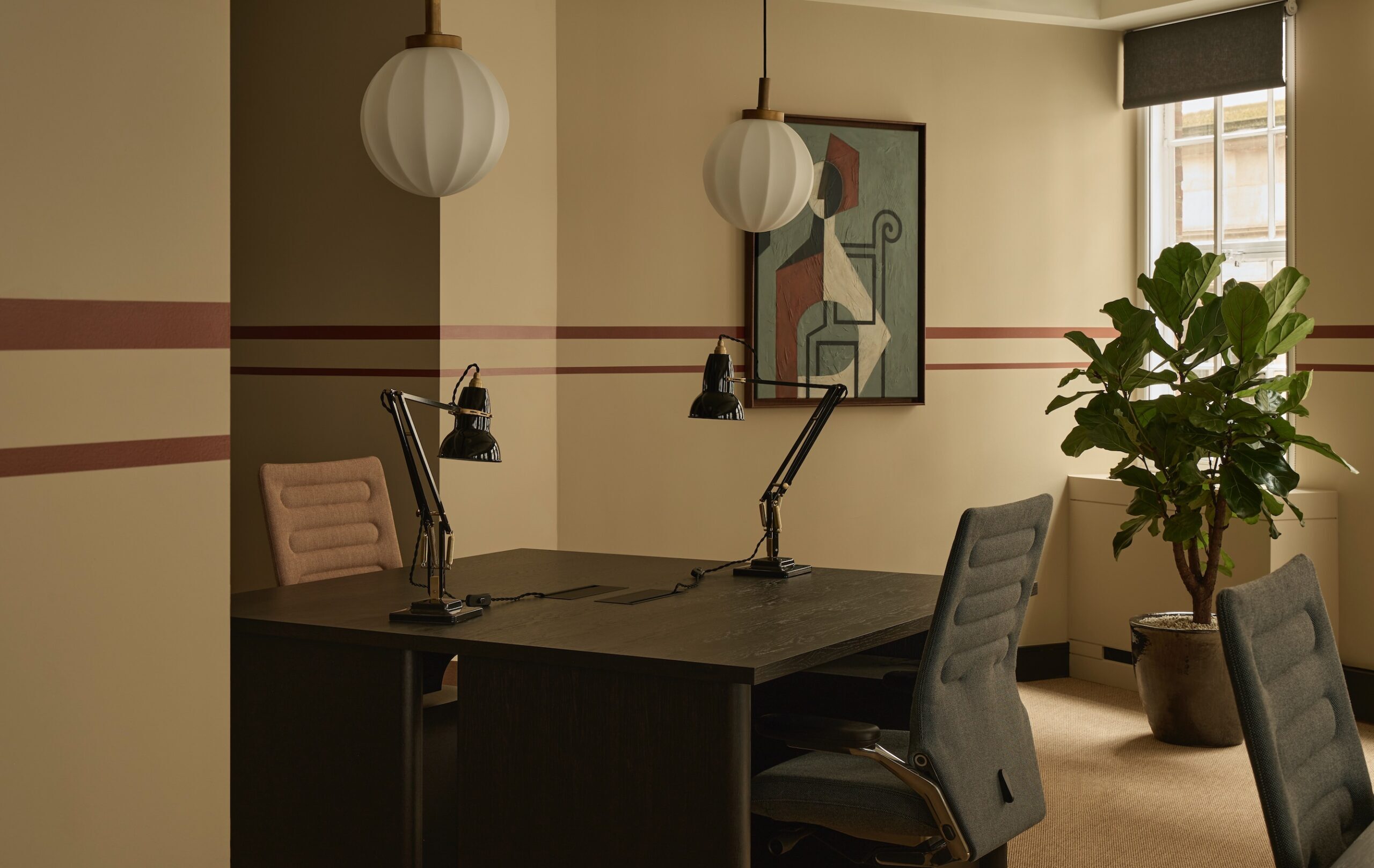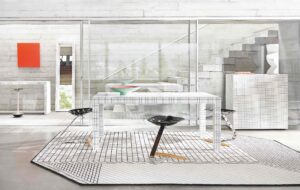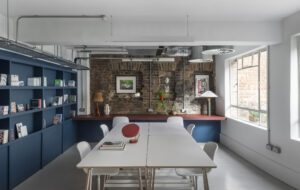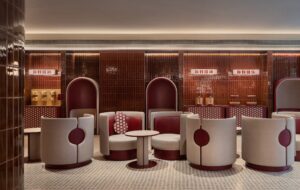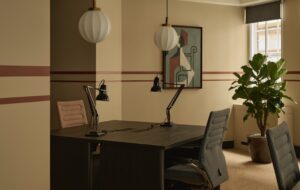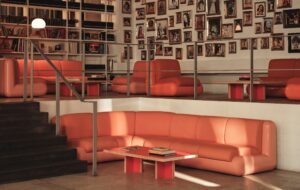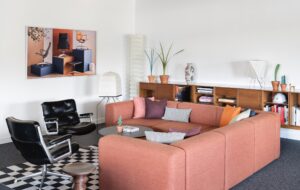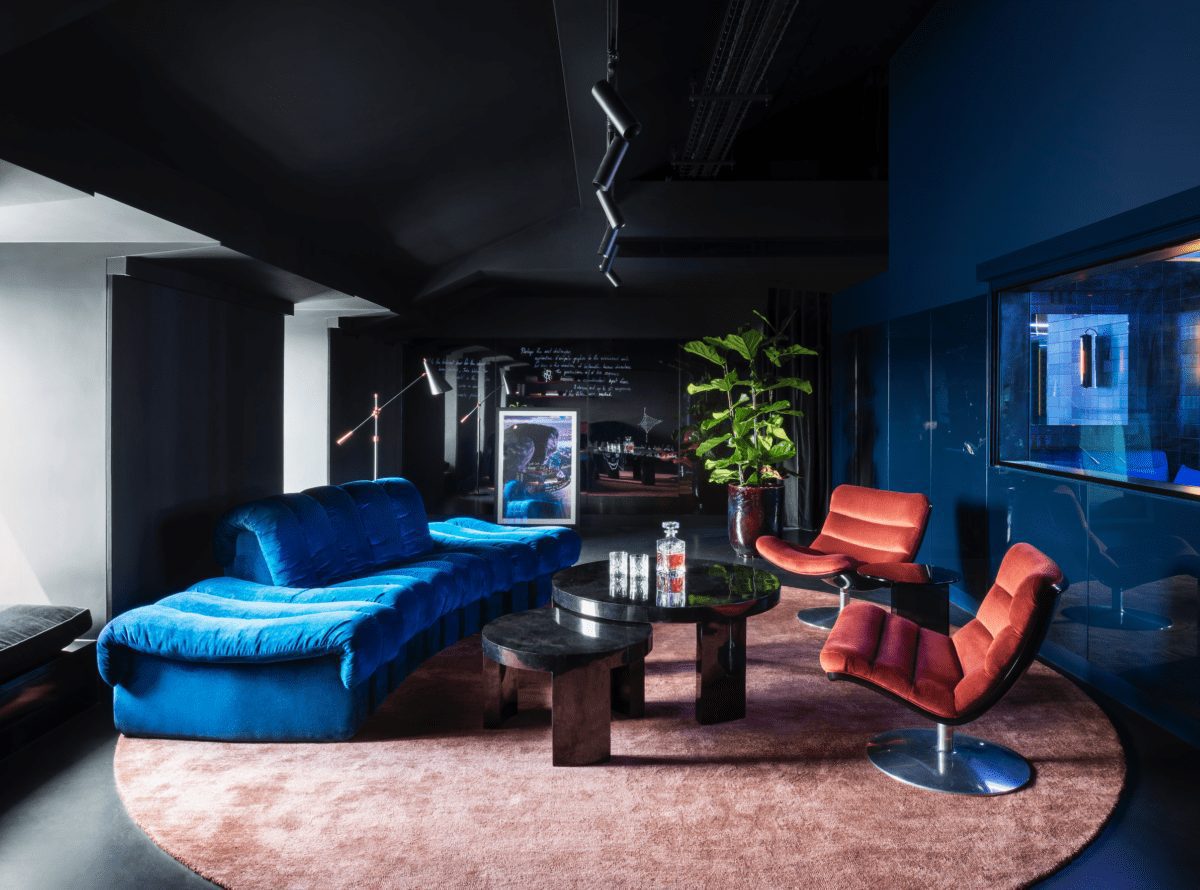
BAFTA-winning, video game developer Ninja Theory enlisted interior design practice Tala Fustok Studio and architectural firm TP Bennett to create a new post-Covid workspace
The best workplaces express something of the values of the organisation that works within them. But few can have such a parity of design and ethos as the offices of Ninja Theory.
The Cambridge-based video game developers — best-known for its sword-wining action game Hellblade: Seuna’s Sacrifice and DmC: Devil May Cry, a reimagining of a modern classic — now sits within an office that carries a spirit of adventure.
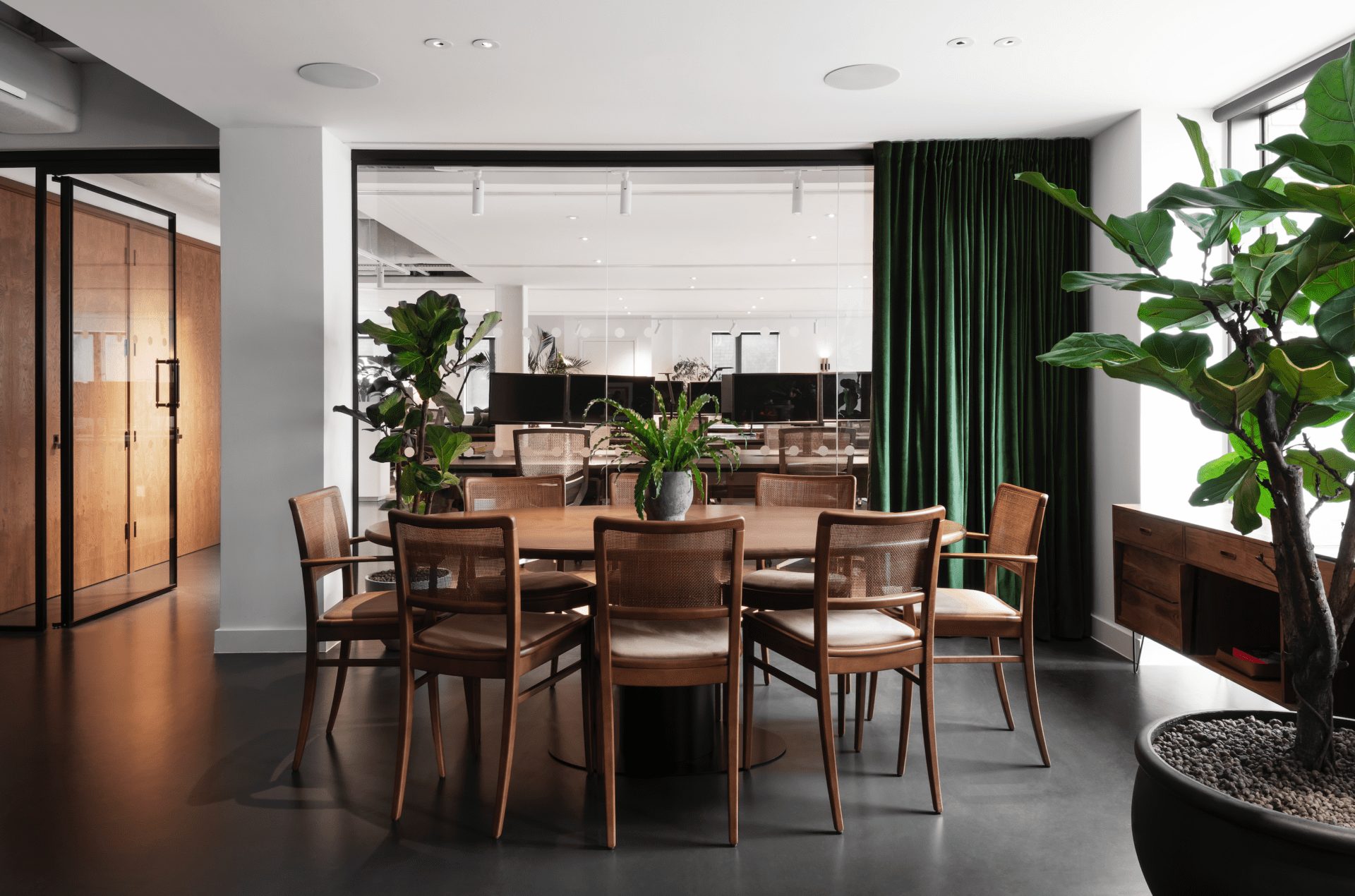
Ninja Theory’s new 2,325m sq, four-storey workplace was designed by interior design practice Tala Fustok Studio and the architects TP Bennett. Tala Fustok’s works to date have split residential and hospitality functions.
They are often luxurious and meticulously considered, with an eye to the storytelling and scene-setting power of interior design. At Ninja Theory, this sumptuous aesthetic is adapted to a distinct brand of contemporary work, equal parts high-tech and creative.
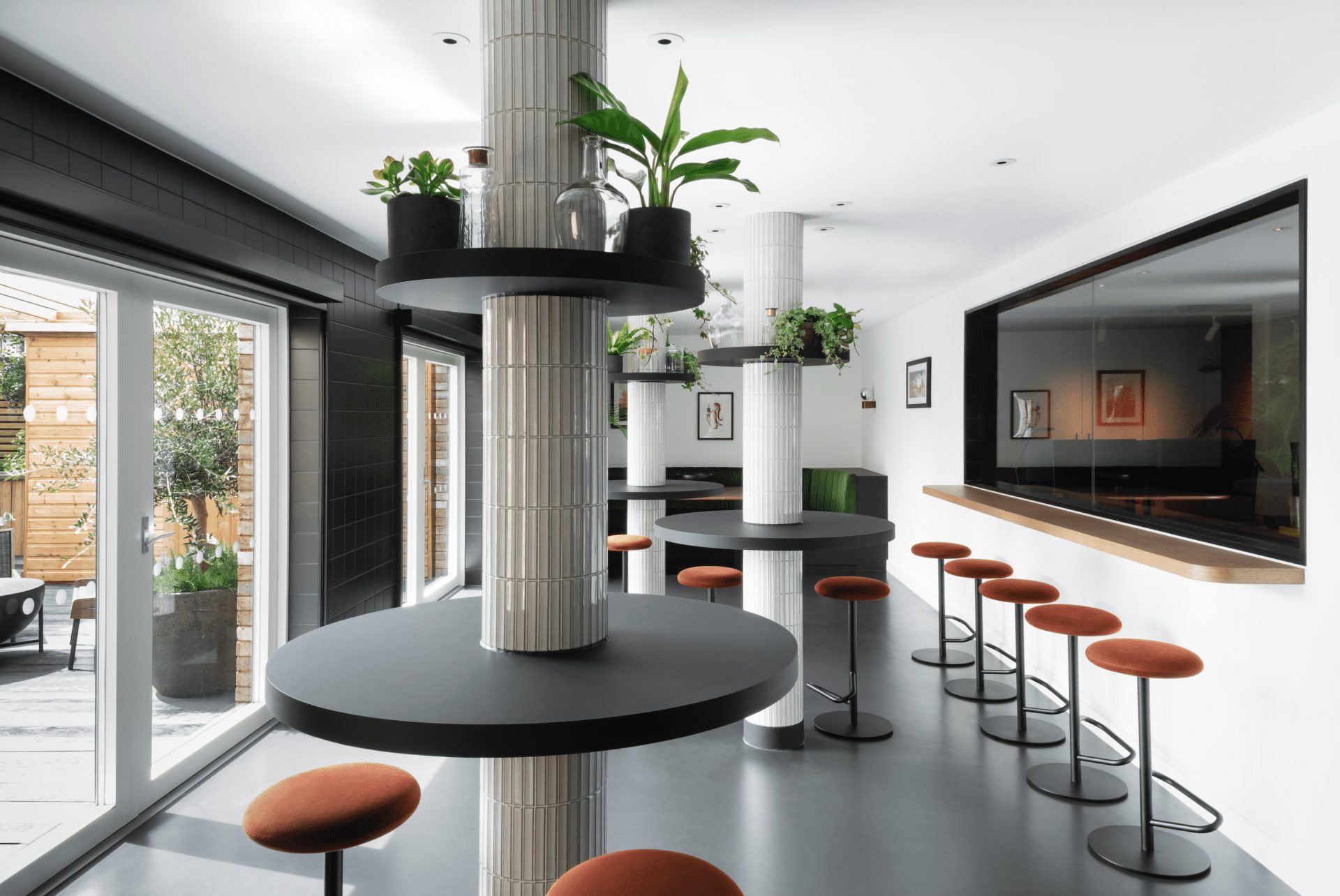
Designed in light of the changes to work wrought by the Covid-19 pandemic, Tala Fustok’s schema aims to disrupt the standard form and functions of the office.
The new project is designed to be flexible and comfortable, a home away from home that should attract employees back into work. It aims to prioritise the mental health of Ninja Theory’s staff, whose recent output has been praised for its sensitive depiction of psychosis.
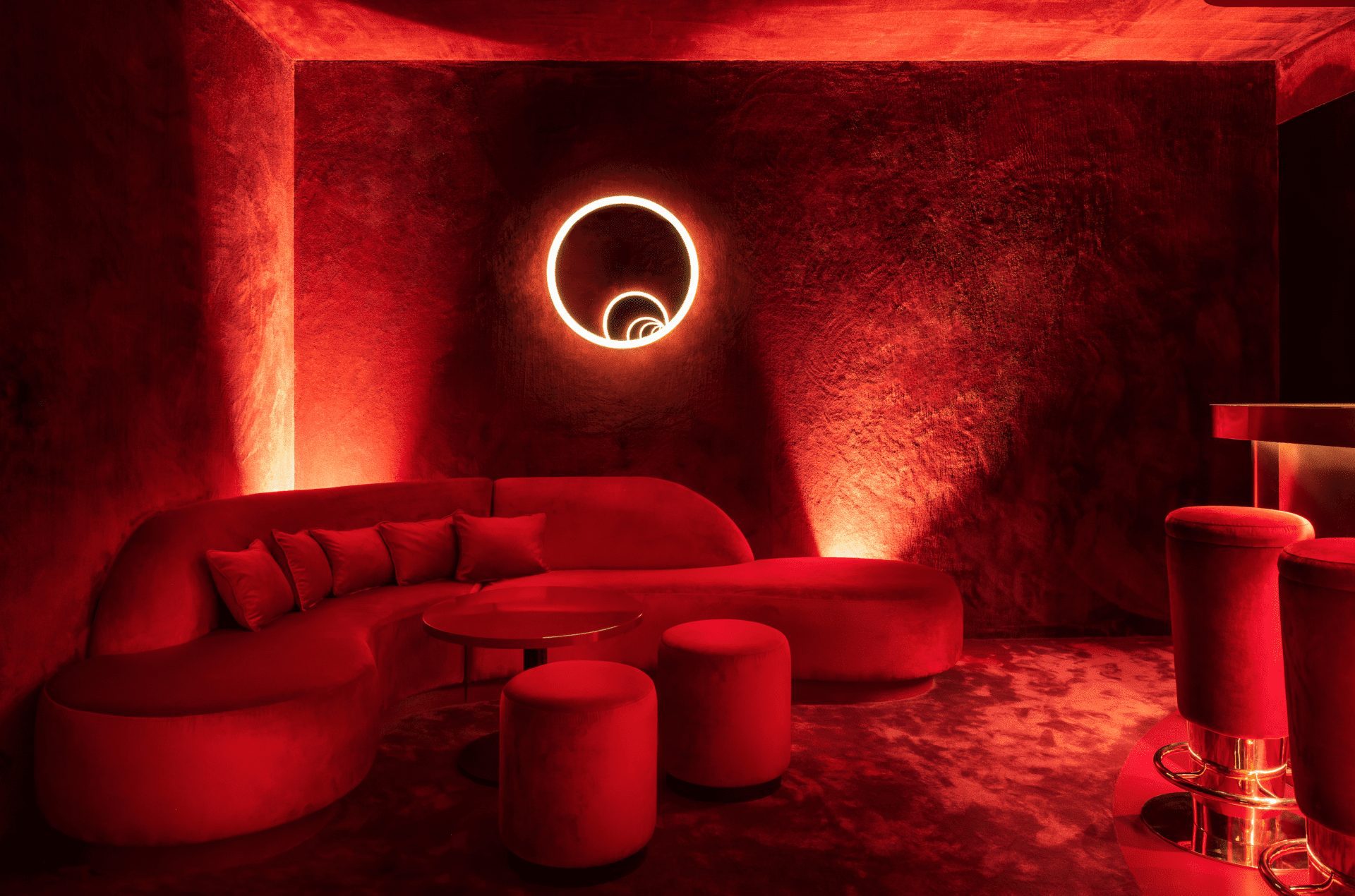
A feeling of drama and immersion begins at the lobby, where black concrete floors and neon-lighting transport visitors out of the humdrum. There are otherworldly elements throughout. One is a motion capture studio, a place where human movement is quite literally transferred into a fictitious digital realm.
The Green Room is dressed in the raiment of a cocktail bar, clothed floor to ceiling with blood red silk carpet. It’s like sitting in the lining of a jewellery box. Throughout, Tala Fustok has chosen sharp, gem-like colours. A screening area shines in a rich, calming ultramarine. On all four floors of the building, dark green fabrics evoke a forest.
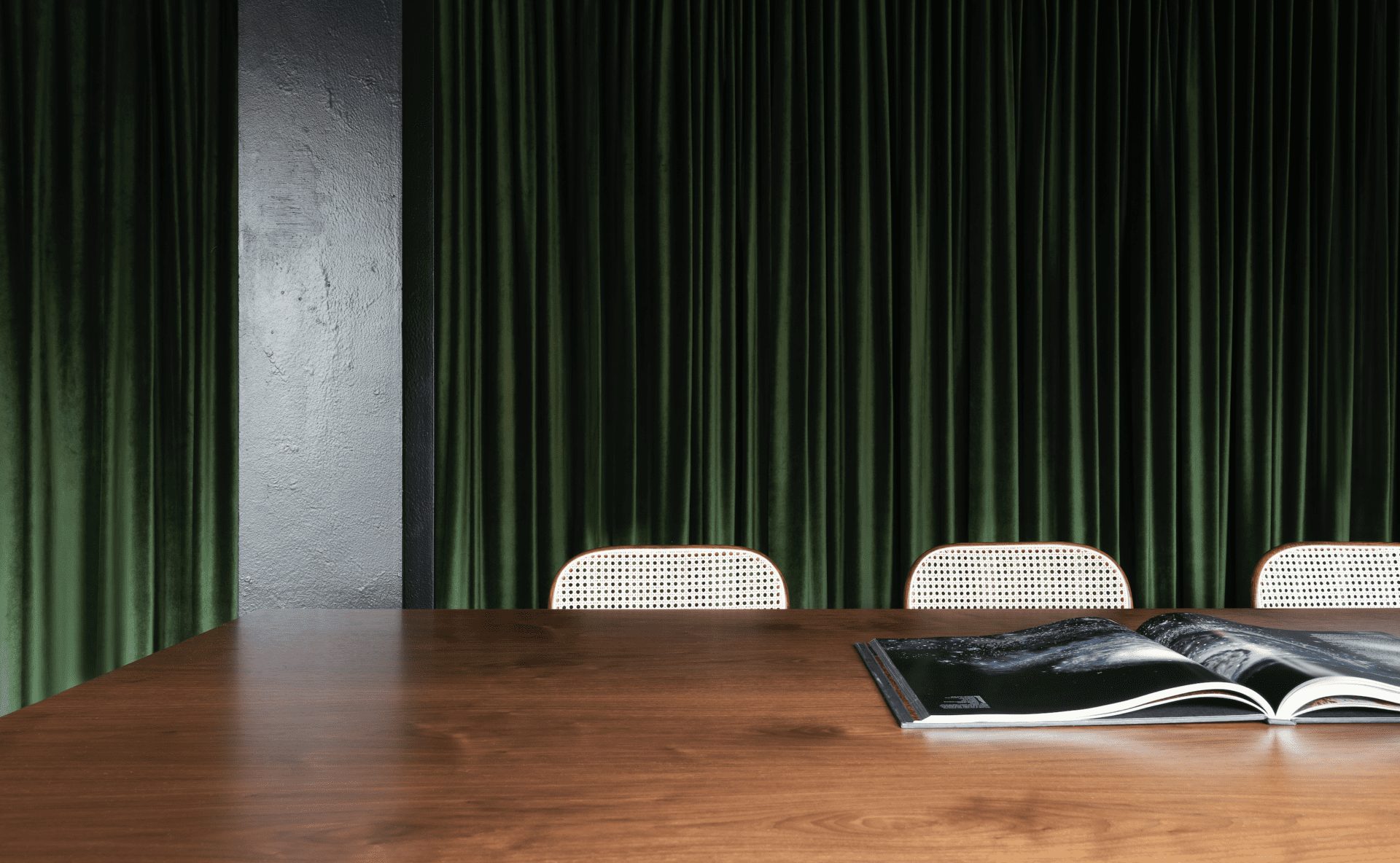
The working areas are highly adaptable. Movable walls allow for spatial reconfiguration. Secluded nooks for solitary work are juxtaposed with bright open-plan offices. A terrace brings in natural light, and offers a space for breaks and outdoor interactions.
The intermingling of these spaces — which fuse work with leisure, domesticity with glamour — draw on the aesthetics of the member’s club, a field in which Tala Fustok has experience. Clubs aim to make members feel secure and special, elevated from the humdrum world outside. Ninja Theory’s new office is a workplace that does the same.
Images by Gilbert McCarragher

